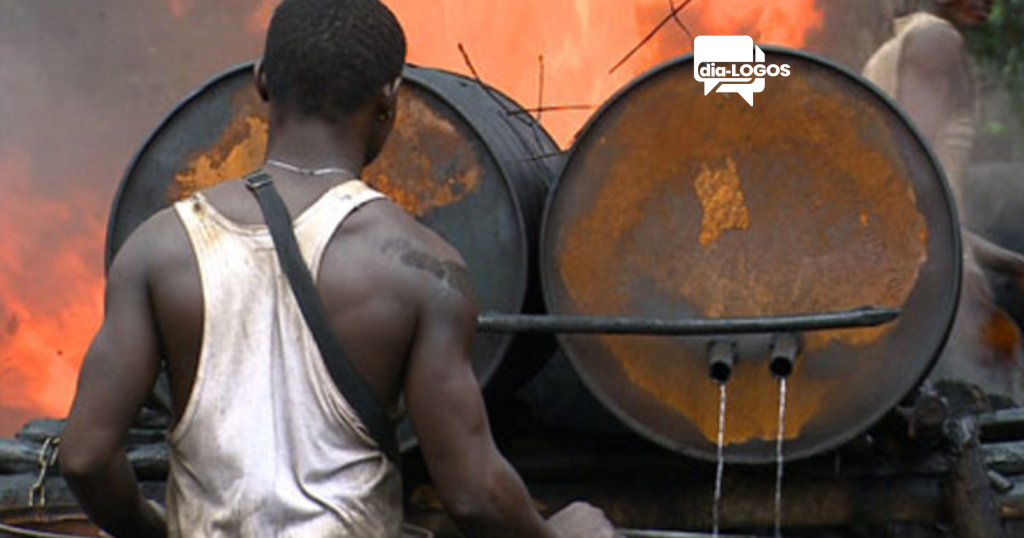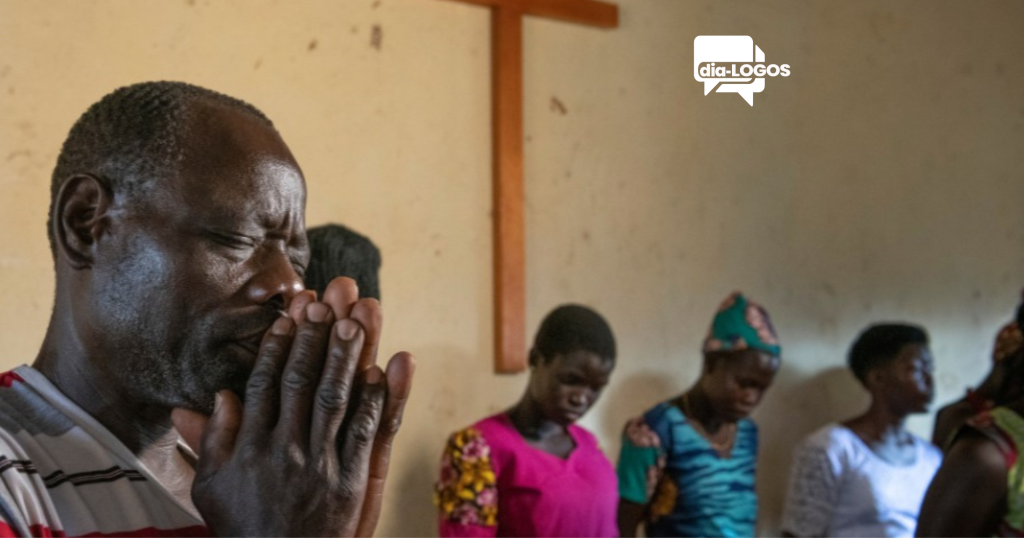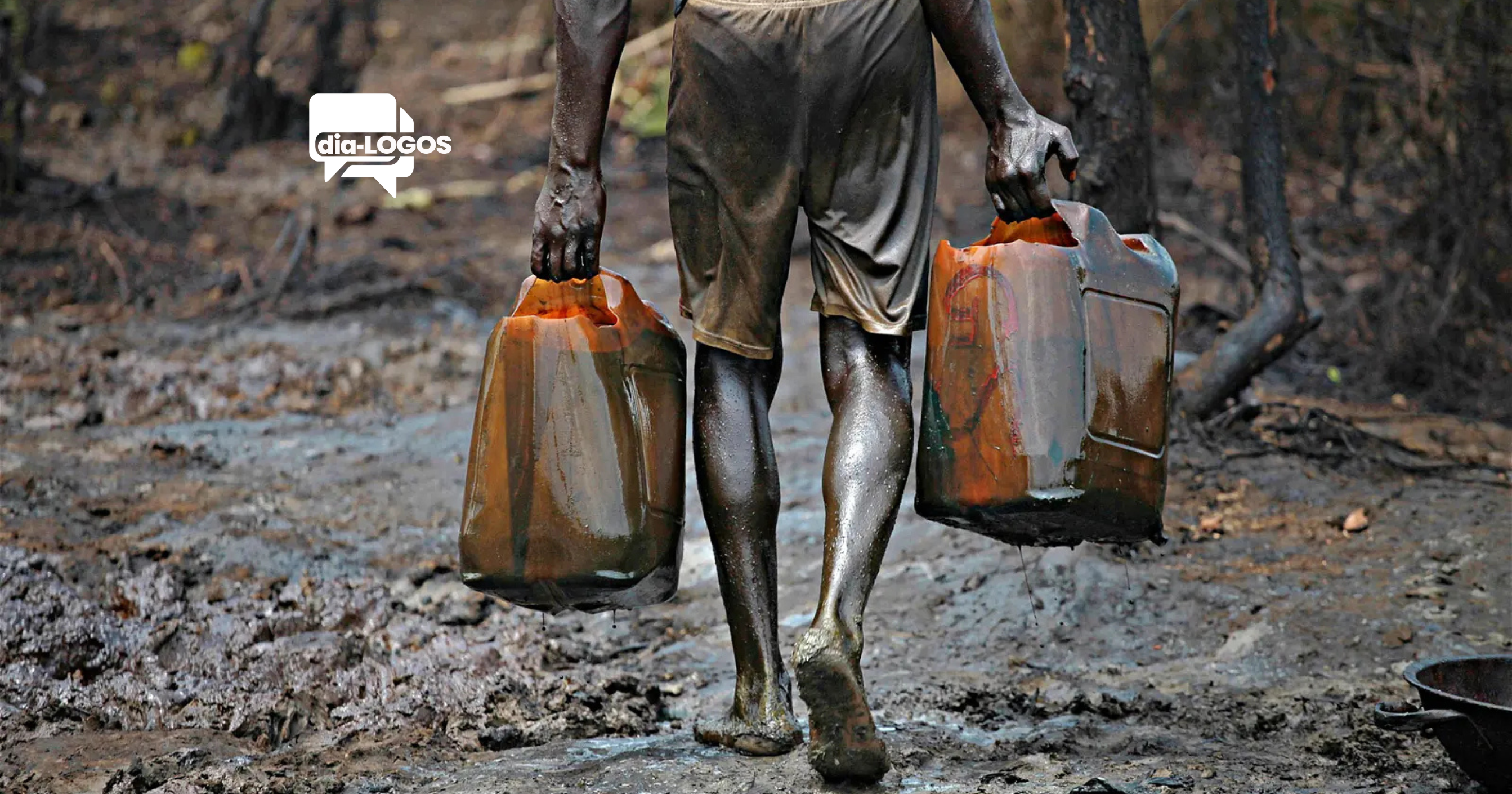Written by Stefan van der Berg
In the first 220 days of 2025, 7,078 Christians have been killed in Nigeria for their faith — an average of 30 every day. According to advocacy groups tracking religious persecution, more Christians were killed in Nigeria in 2024 than in the rest of the world combined. These are not just statistics; they represent shattered families, emptied villages, and sanctuaries reduced to ash.
I write this from a Christian perspective, not to narrow the lens, but to acknowledge the reality that the church in Nigeria is facing one of its gravest modern challenges. At the heart of this crisis lies a brutal equation: the funding mechanisms that sustain Boko Haram and its offshoots. Among these, illicit oil — stolen from pipelines, refined in the shadows, and sold through black-market networks — plays a decisive role. Understanding this economy of violence is essential to understanding why the killing continues, and why the church’s struggle is as much about survival as it is about faith.
A Movement Rooted in Rejection
Boko Haram—Jama’atu Ahlis Sunna Lidda’awati wal-Jihad—emerged in 2002 as a radical rejection of Western education and secular governance. Its name, derived from Hausa, translates to “Western education is forbidden.” The group’s ideology calls for the imposition of strict sharia law and the dismantling of Nigeria’s political elite, whom it views as morally bankrupt.
Since launching its armed insurgency in 2009, Boko Haram has killed tens of thousands and displaced more than 2.5 million people, according to UNHCR figures. Christian communities have been disproportionately targeted, with churches burned, worshippers executed, and entire villages razed. The 2014 abduction of 276 schoolgirls from Chibok shocked the world—but for many in Nigeria, it was just one chapter in a long, brutal campaign.
Oil, Poverty, and the Rise of Informal Economies
Nigeria’s economy is heavily dependent on oil, which accounts for more than 70% of government revenue. When global oil prices collapsed in the mid-2010s, the country faced a $15 billion budget deficit. The government’s ability to fund military operations and public services eroded—creating fertile ground for insurgents to expand their influence.
At the same time, pipeline vandalism and crude theft surged. The Nigerian National Petroleum Company (NNPC) reported losses of up to 400,000 barrels per day in 2024 due to sabotage and illegal bunkering. In the Niger Delta, criminal syndicates—often with insider help—tap pipelines using makeshift valves and siphon crude into boats and trucks bound for hidden camps.
There, in open-air refineries, the oil is “sacked”—heated in metal drums over firewood to separate diesel, petrol, and kerosene. The process is rudimentary, dangerous, and toxic. Children as young as 10 are recruited to assist, often acting as lookouts for military patrols. The refined fuel is sold in local markets or smuggled across borders to Chad and Cameroon, where prices are higher and oversight is weaker.
In mid-2024, black market petrol in Lagos and Ogun states sold for ₦1,800 per litre—more than triple the official rate. Subsidized fuel, meant to ease domestic hardship, became a prized commodity in the region’s informal economy.

Insurgents as Economic Governors
Boko Haram and ISWAP have evolved from guerrilla fighters into shadow governors. In territories under their control, they impose taxes, enforce laws, and provide basic services. Their financial system is structured around zakat (Islamic tax), jizya (levy on non-Muslims), and extortion—pooled into a central treasury known as Baitul Ma-al.
Fuel smuggling plays a pivotal role. Insurgents either engage directly or tax those who do. In some cases, they offer protection to smugglers in exchange for a cut of the profits. The result: black-market oil becomes a strategic asset—funding weapons, vehicles, and recruitment while deepening their grip on local economies.
The Financial Web Behind the Guns
The insurgency economy is sustained by a constellation of actors:
Local traders and smugglers move fuel, fish, and livestock across porous borders.
POS agents and informal businesses—including mobile phone shops and pharmacies—serve as conduits for laundering money. A 2023 investigation by the Nigerian Financial Intelligence Unit (NFIU) uncovered dozens of such businesses linked to terrorist financiers.
Hawala networks bypass formal banking systems, making transactions nearly impossible to trace.
Cryptocurrency channels have emerged as a new frontier. ISWAP has begun soliciting donations via the dark web, exploiting digital anonymity to evade surveillance.
These financial flows are decentralized but resilient. Ransom payments from kidnappings, trade taxes on livestock, and fuel profits all feed into a system that allows insurgents to operate with surprising sophistication—despite being based in some of Nigeria’s poorest regions.
Strategic Implications
The entanglement of black-market oil and insurgency presents a daunting challenge for Nigerian authorities. Military operations alone cannot dismantle networks that are embedded in civilian livelihoods. Disrupting these flows requires financial intelligence, regional cooperation, and economic reform.
Efforts by the NFIU have led to arrests and asset freezes, but the scale of the problem remains vast. As long as oil theft continues unchecked, and informal economies remain the only lifeline for millions, insurgents will have the resources to endure—and expand.
Nigeria’s fight against terrorism is not just a battle of ideology or firepower. It is a battle over who controls the nation’s wealth. And until that question is answered, the pipelines will continue to bleed—not just oil, but lives.
Faith Under Siege
While the economic damage is staggering, the spiritual toll is equally profound. Churches in conflict zones have been burned, congregations scattered, and clergy displaced. With communities uprooted and livelihoods destroyed, religious institutions face financial collapse. Many churches rely on member donations, which have dwindled as families struggle to survive.
Theological tensions have surfaced. Some pastors preach pacifism, urging believers to turn the other cheek. Others advocate self-defence, citing scripture to justify resistance. The lack of a unified theological response reflects the diversity of Nigeria’s Christian landscape—and the deep moral questions raised by prolonged violence.
For many believers, the crisis has shaken their faith. Some interpret the insurgency as divine punishment or a sign of the end times. Others feel abandoned, questioning whether God still watches over them. A few have turned to traditional spiritual practices, seeking protection through charms and rituals. Yet, amid the despair, countless Christians have stood firm—refusing to renounce their faith even under threat of death.
Pastoral Care in Crisis
The displacement of clergy has created a pastoral vacuum. With churches destroyed and congregants scattered across refugee camps, spiritual support has become fragmented. Some pastors have abandoned their posts, seeking aid for their own families. Others have risen to the challenge—visiting camps, offering comfort, and planting new churches in previously unreached areas.
In many camps, pastors and members compete for relief materials, blurring the lines between shepherd and flock. The breakdown of traditional pastoral structures has exposed both the vulnerability and resilience of faith communities. Despite the chaos, some leaders have found new purpose, transforming displacement into mission.
Psychological and Social Fallout
The trauma of insurgency extends beyond physical destruction. Kidnappings—especially of women and girls—have left deep psychological scars. Families sell everything they own to pay ransoms, plunging deeper into poverty.
In the scorched terrain of Nigeria’s northeast, the convergence of black-market oil and religious extremism has created a devastating cycle—one that bankrolls terror while tearing at the fabric of faith. Boko Haram’s exploitation of stolen crude and informal trade routes has not only sustained its insurgency but deepened the suffering of Christian communities, who remain among the most targeted and traumatized.
Churches lie in ruins, congregations are scattered, and spiritual leaders struggle to shepherd flocks displaced by violence and fear. As illicit oil fuels the machinery of terror, it also extinguishes the light of sanctuary—leaving behind not just economic wreckage but a profound crisis of belief. And yet, in the ashes, faith endures. Scarred but unbroken, it stands as quiet defiance against forces that seek to silence it.

Pray For Nigeria
Persecution has a way of binding the body of Christ together, driving us to our knees before the Lord. Yet in Nigeria, it is not only the church that suffers — the very fabric of society and the stability of the nation are under threat.
As we remember those who have lost loved ones, homes, or livelihoods — and those who have endured the trauma of violence and abuse — let us pray for God’s restoration and healing.
Pray for grace to forgive, and for deliverance from the snare of bitterness and revenge.
Ask the Lord to strengthen His people to respond with the courage, mercy, and love of Christ. And let us not forget to pray for those who persecute — that the enemies persecutors would encounter Jesus, repent, and become His followers.

